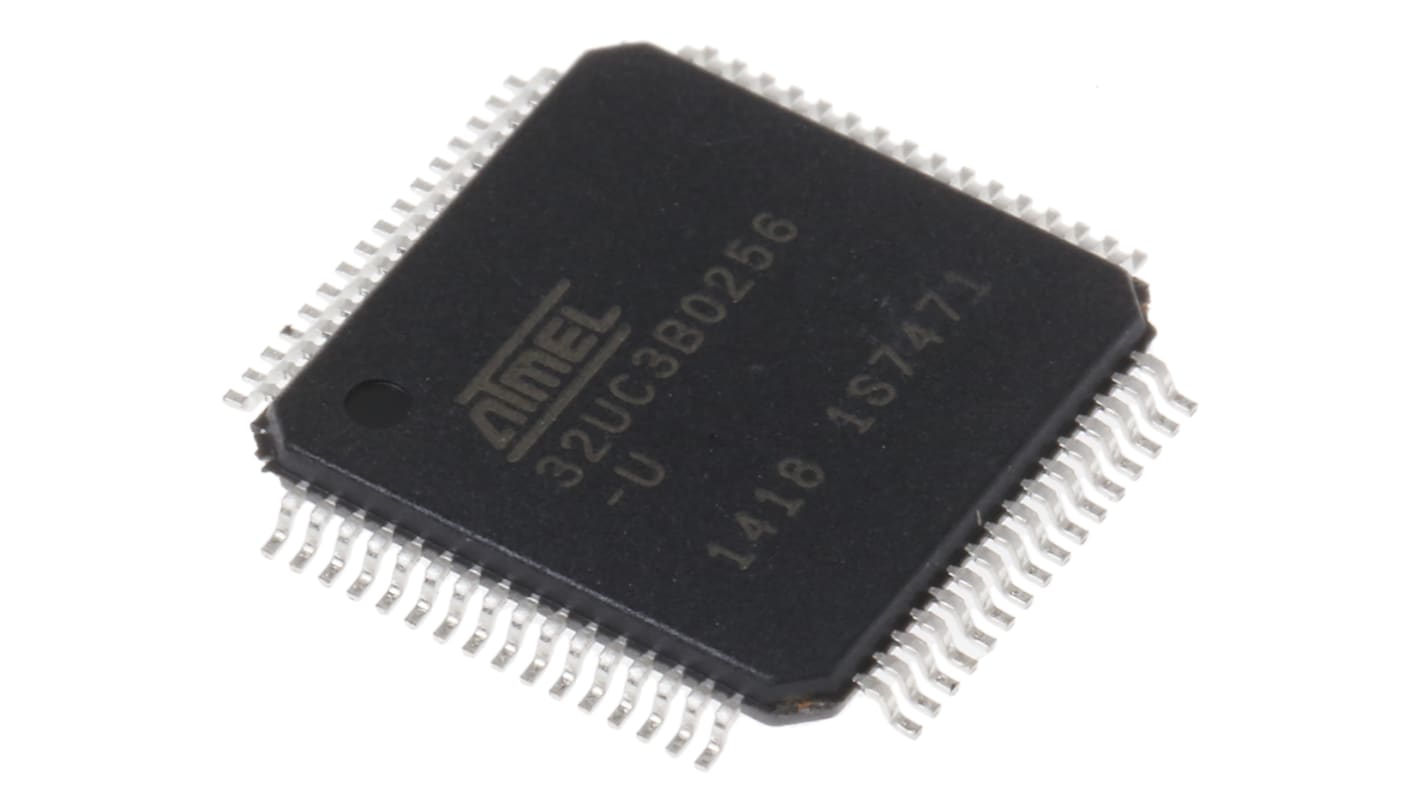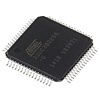Atmel, 32bit AVR, AT32 Microcontroller, 60MHz, 256 kB Flash, 64-Pin TQFP
- RS Stock No.:
- 696-3323
- Mfr. Part No.:
- AT32UC3B0256-A2UT
- Brand:
- Atmel

Alternative
This product is not currently available. Here is our alternative recommendation.
Each
£6.66
(exc. VAT)
£7.99
(inc. VAT)
- RS Stock No.:
- 696-3323
- Mfr. Part No.:
- AT32UC3B0256-A2UT
- Brand:
- Atmel
Select all | Attribute | Value |
|---|---|---|
| Brand | Atmel | |
| Family Name | AT32 | |
| Package Type | TQFP | |
| Mounting Type | Surface Mount | |
| Pin Count | 64 | |
| Device Core | AVR | |
| Data Bus Width | 32bit | |
| Program Memory Size | 256 kB | |
| Maximum Frequency | 60MHz | |
| RAM Size | 32 kB | |
| USB Channels | 1 x Device, 1 x Host | |
| Number of PWM Units | 1 | |
| Number of SPI Channels | 1 | |
| Number of CAN Channels | 0 | |
| Number of UART Channels | 0 | |
| Number of I2C Channels | 1 | |
| Typical Operating Supply Voltage | 1.65 → 3.6 V | |
| Number of USART Channels | 3 | |
| Height | 1.05mm | |
| ADCs | 8 x 10 bit | |
| Number of LIN Channels | 0 | |
| Length | 10mm | |
| Dimensions | 10 x 10 x 1.05mm | |
| Instruction Set Architecture | RISC | |
| Maximum Operating Temperature | +85 °C | |
| Number of ADC Units | 1 | |
| Minimum Operating Temperature | -40 °C | |
| Pulse Width Modulation | 7 x 20 bit | |
| Program Memory Type | Flash | |
| Width | 10mm | |
| Number of PCI Channels | 0 | |
| Number of Ethernet Channels | 0 | |
Select all | ||
|---|---|---|
Brand Atmel | ||
Family Name AT32 | ||
Package Type TQFP | ||
Mounting Type Surface Mount | ||
Pin Count 64 | ||
Device Core AVR | ||
Data Bus Width 32bit | ||
Program Memory Size 256 kB | ||
Maximum Frequency 60MHz | ||
RAM Size 32 kB | ||
USB Channels 1 x Device, 1 x Host | ||
Number of PWM Units 1 | ||
Number of SPI Channels 1 | ||
Number of CAN Channels 0 | ||
Number of UART Channels 0 | ||
Number of I2C Channels 1 | ||
Typical Operating Supply Voltage 1.65 → 3.6 V | ||
Number of USART Channels 3 | ||
Height 1.05mm | ||
ADCs 8 x 10 bit | ||
Number of LIN Channels 0 | ||
Length 10mm | ||
Dimensions 10 x 10 x 1.05mm | ||
Instruction Set Architecture RISC | ||
Maximum Operating Temperature +85 °C | ||
Number of ADC Units 1 | ||
Minimum Operating Temperature -40 °C | ||
Pulse Width Modulation 7 x 20 bit | ||
Program Memory Type Flash | ||
Width 10mm | ||
Number of PCI Channels 0 | ||
Number of Ethernet Channels 0 | ||
32-Bit AVR UC3 Microcontrollers
To fully exploit the power of a 32-bit architecture, the AVR32 is not binary compatible with earlier AVR architectures. In order to achieve high code density, the instruction format is flexible providing both compact 16-bit and extended 32-bit instructions. While most instructions are 16-bit, powerful 32-bit instructions are implemented to further increase performance. Compact and extended instructions can be freely mixed in the instruction stream.

